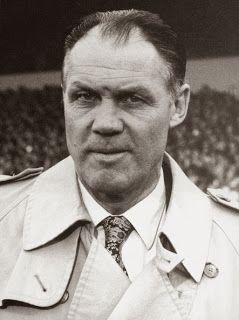
Eredivisie: Reposing the faith in Total football

The key to Rinus Michels’s Total Football concept was intelligent movement, understanding and fitness. It has been decades since the legendary Dutch coach re-invented and refined a system practised by his former boss Jack Reynolds at Ajax Amsterdam.
Not surprisingly, the Dutch champions have retained the style and followed it with a sense of pride. Even Barcelona learned the nuances of total football from former Ajax man Johan Cruyff to lay the foundation of their own ‘tiki-taka’.
FC Twente, lacking Ajax’s legacy and fame, teach ‘Totaalvoetbal’ to their aspiring players like all Dutch academies, according to Dennis Bekking, FC Twente’s Under-12 coach.
“Total football is still widely followed by all clubs in the Netherlands. We don’t want even our goalkeepers to stand idle as we believe in mobility,” said 36-year-old Bekking.
Ajax, the most famous club in the Netherlands, may not have been successful in recent European competitions. But, along with Feyenoord and PSV, they have successfully produced an array of great talents. Arjen Robben and Robin van Persie are household names in world football.
Brought up in a culture of total football, these players may have adopted their respective club’s philosophy, but they have not disowned the original system. “It’s difficult to think about any other system when you’re Dutch,” said Bekking. In fact, the ‘total was initially made popular by Hungary, led by their all-time great Ferenc Puscas, in the 1950s.
Reynolds, who was the manager of Ajax from 1915-25, 1928-40 and from 1945-47, refined the tactical procedures of that system. But it was Michels, who made it popular with Ajax as well as the Netherlands in ’70s. When Michels left for Barcelona in ’71, it was further refined by Romanian Stefan Kovacs.
“In a way, it was always a continuous process and we never left total football. I don’t think we’ll ever opt for something different,” said Bekking. “All Dutch clubs have a dream to get to a higher level. We develop good players and that’s the strength of our football,” said Bekking, who completed his UEFA A Licence in ’08.
As the immaculate Dutch teams of the ’70s enthralled, the world watched them in open-mouthed wonder and the fluidity of their style became the fulcrum of every tactical discussion. At the 2010 FIFA World Cup in South Africa, the Netherlands dazzled as they qualified for the final for the first time after ’78, but only to go down to Spain. Despite having the best players and a rich culture, why do Dutch sides disappoint in top competitions?
“The young players leave for top European clubs when they’re 16 or 17. Hence, our own clubs don’t have enough quality players,” said Niek Loohuis, FC Twente’s U-11 coach. “But now, the trend is slowly changing. It isn’t that all the players who sign for the top clubs find themselves in the first team. Some of them warm the bench. So, younger players now prefer to stay back in the Netherlands and play for their own clubs,” added the 27-year-old.
FC Twente have showed promise in recent years, particularly after winning their maiden Dutch League in ’09, under English manager Steve McClaren. This season, the club finished sixth. The Netherlands have produced a lot of quality players, admired for their silken skills. But unfortunately, lack of money in the Dutch League has forced these players to ply their trade in England, Germany and Spain where they can earn much more.
“Our is a small country and out of the total 16 million people, an estimated half a million play the game. But the League isn’t as attractive as the English Premier League or German Bundesliga,” said Loohuis. “So the problem is with money and numbers. When top players leave, the level of the competition drops. So you’ve less money from TV and sponsors,” he added. But both these young coaches are optimistic that things will change as young players are increasingly opting to stay back.